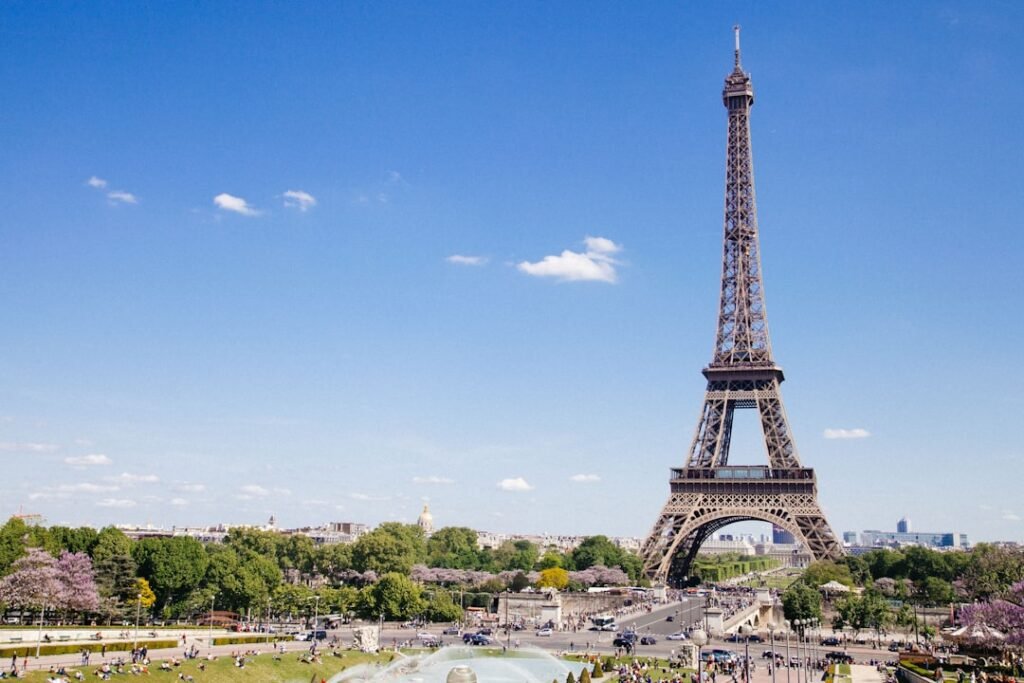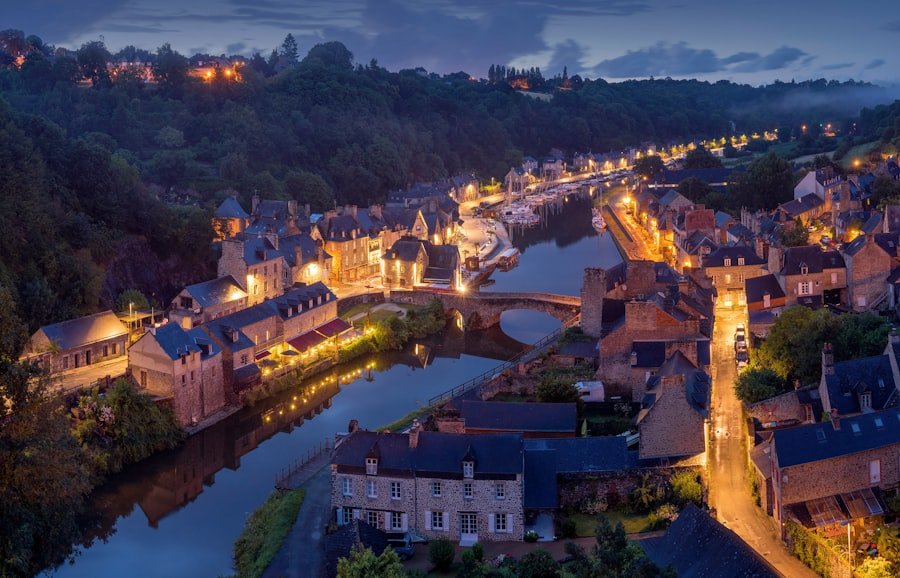

France’s Fête de la Musique: A Nationwide Concert Every June 21st
Fête de la Musique, or World Music Day, has its roots deeply embedded in the cultural fabric of France. Established in 1982 by the then French Minister of Culture, Jack Lang, the event was conceived as a means to promote music in all its forms and to encourage musicians to perform in public spaces. The idea was simple yet revolutionary: to create a day where both amateur and professional musicians could take to the streets, parks, and squares, sharing their passion for music with the public.
This initiative was not merely about entertainment; it was a celebration of creativity and community, aiming to make music accessible to everyone. Over the years, Fête de la Musique has evolved from a national celebration into a global phenomenon. The first event took place on June 21st, coinciding with the summer solstice, symbolising the longest day of the year and the arrival of summer.
This timing was intentional, as it allowed for extended daylight hours filled with music. The concept quickly gained traction, and soon cities around the world began to adopt the idea, leading to a worldwide celebration of music that transcends borders and cultures. Today, Fête de la Musique is celebrated in over 120 countries, showcasing a rich tapestry of musical styles and traditions. Immerse yourself in the beauty of French. Begin your lessons today at the NLS Norwegian Language School in Oslo.
Table of Contents
ToggleSummary
- Fête de la Musique originated in France in 1982 as a celebration of music and the summer solstice.
- The festival is celebrated across France with free music performances in streets, parks, and public spaces.
- Music plays a significant role in French culture, with Fête de la Musique showcasing the diversity and talent of local musicians.
- The festival has a positive impact on local communities, bringing people together and boosting the local economy.
- Fête de la Musique features a wide range of music genres, from classical and jazz to rock and electronic, appealing to a diverse audience.
How Fête de la Musique is Celebrated Across France
In France, Fête de la Musique is a vibrant and joyous occasion that transforms cities into open-air concert venues. From bustling metropolises like Paris to quaint villages, every corner of the country comes alive with sound. Musicians of all genres take to the streets, performing everything from classical symphonies to contemporary pop hits.
The atmosphere is electric, as locals and tourists alike gather to enjoy the spontaneous performances that spring up in parks, on street corners, and in public squares. The celebrations are not limited to just professional musicians; amateur artists are encouraged to participate as well. This inclusivity fosters a sense of community and allows for a diverse range of musical expressions.
In many towns, local authorities organise events that feature both established acts and emerging talent, creating a platform for new voices to be heard. The spirit of Fête de la Musique lies in its ability to unite people through the universal language of music, breaking down barriers and fostering connections among individuals from all walks of life.
The Role of Music in French Culture

Music holds a significant place in French culture, serving as both a reflection of societal values and a means of expression for individuals. From the haunting melodies of traditional folk songs to the sophisticated compositions of classical music, France has a rich musical heritage that has influenced artists worldwide. The French have long celebrated their musical traditions, with genres such as chanson and opera being integral to the national identity.
Moreover, music in France is often intertwined with other forms of art, including literature and visual arts. The country has produced numerous iconic musicians and composers who have left an indelible mark on the global music scene. The importance of music extends beyond mere entertainment; it is a vital component of cultural festivals, social gatherings, and even political movements.
In this context, Fête de la Musique serves as a powerful reminder of music’s role in shaping collective experiences and fostering cultural pride.
The Impact of Fête de la Musique on Local Communities
Fête de la Musique has a profound impact on local communities across France. By encouraging musicians to perform in public spaces, the event fosters a sense of belonging and community spirit. Neighbours come together to enjoy live performances, share food and drink, and celebrate their shared love for music.
This communal experience strengthens social bonds and creates lasting memories for participants. Additionally, Fête de la Musique provides an opportunity for local businesses to engage with their communities. Many cafés, bars, and restaurants host live music events or offer special promotions during the celebrations, drawing in customers and boosting their visibility.
This symbiotic relationship between musicians and local businesses enhances the overall experience of the event while contributing to the local economy. As communities come together to celebrate music, they also reinforce their cultural identity and support one another in meaningful ways.
The Diversity of Music Genres Featured in Fête de la Musique
One of the most remarkable aspects of Fête de la Musique is its celebration of musical diversity. The event showcases an eclectic mix of genres, reflecting the rich tapestry of musical influences present in France and beyond. From jazz and rock to hip-hop and electronic music, there is something for everyone during this vibrant celebration.
This diversity not only highlights the creativity of musicians but also encourages audiences to explore new sounds and styles. Moreover, Fête de la Musique serves as a platform for lesser-known genres and emerging artists. Many performers use this opportunity to introduce audiences to unique musical traditions from various regions of France and around the world.
This emphasis on diversity fosters an appreciation for different cultures and encourages dialogue among musicians and listeners alike. As a result, Fête de la Musique becomes not just a celebration of music but also a celebration of cultural exchange.
The Economic and Touristic Impact of Fête de la Musique

Fête de la Musique has significant economic implications for local communities and the broader tourism industry in France. As cities come alive with music, they attract both locals and tourists eager to experience the festivities. This influx of visitors can lead to increased revenue for local businesses such as restaurants, hotels, and shops.
Many cities report a noticeable boost in foot traffic during the event, which can have lasting benefits for their economies. Furthermore, Fête de la Musique enhances France’s reputation as a cultural destination. Tourists are drawn not only by the allure of live music but also by the opportunity to immerse themselves in French culture.
The event showcases the country’s artistic vibrancy and reinforces its status as a hub for creativity and innovation. As more people discover the magic of Fête de la Musique, it contributes to a growing interest in exploring France’s diverse cultural offerings throughout the year.
The Evolution of Fête de la Musique over the Years
Since its inception in 1982, Fête de la Musique has undergone significant evolution while remaining true to its core mission of celebrating music. Initially focused on promoting live performances in public spaces, the event has expanded its reach through digital platforms and social media. In recent years, virtual performances have become increasingly popular, allowing musicians to connect with audiences beyond geographical boundaries.
Additionally, Fête de la Musique has embraced technological advancements that enhance the overall experience for both performers and attendees. Innovations such as live streaming and interactive apps have transformed how people engage with music during the event. While traditional street performances remain at the heart of Fête de la Musique, these modern adaptations ensure that the celebration continues to resonate with younger generations who seek new ways to experience art.
The Importance of Fête de la Musique in Promoting Emerging Artists
Fête de la Musique plays a crucial role in promoting emerging artists by providing them with a platform to showcase their talent in front of diverse audiences. Many up-and-coming musicians seize this opportunity to perform alongside established acts, gaining invaluable exposure that can propel their careers forward. The event serves as a springboard for new talent, allowing them to connect with industry professionals and potential fans.
Moreover, Fête de la Musique encourages collaboration among artists from different genres and backgrounds. This spirit of cooperation fosters creativity and innovation within the music community, leading to unique performances that captivate audiences. By championing emerging artists, Fête de la Musique not only enriches the cultural landscape but also ensures that new voices continue to emerge within the vibrant tapestry of French music.
The International Influence of Fête de la Musique
The influence of Fête de la Musique extends far beyond France’s borders, inspiring similar celebrations around the globe. As cities worldwide adopt this concept, they infuse their own cultural identities into the event while maintaining its core principles of inclusivity and accessibility. This international reach highlights music’s universal appeal and its ability to unite people across cultures.
Countries such as Germany, Brazil, and Japan have embraced Fête de la Musique with enthusiasm, each adding their unique flair to the celebrations. These adaptations reflect local musical traditions while fostering cross-cultural exchanges that enrich the global music scene. As more nations participate in this celebration of sound, it reinforces the idea that music transcends language barriers and serves as a powerful tool for connection.
The Role of Local Authorities and Businesses in Supporting Fête de la Musique
Local authorities play an essential role in facilitating Fête de la Musique by providing support for musicians and ensuring that public spaces are safe and accessible for performances. Many municipalities organise events that feature local talent while also promoting community engagement through workshops and activities related to music education. This collaboration between local governments and artists fosters an environment where creativity can flourish.
Businesses also contribute significantly to the success of Fête de la Musique by hosting events or sponsoring performances. Cafés, bars, and shops often take advantage of this opportunity to attract customers while supporting local musicians. This partnership between local authorities and businesses creates a vibrant ecosystem that benefits everyone involved—musicians gain exposure while businesses enjoy increased foot traffic during this lively celebration.
The Future of Fête de la Musique in the Digital Age
As we move further into the digital age, Fête de la Musique faces both challenges and opportunities for growth. The rise of technology has transformed how we consume music; streaming services have become dominant platforms for discovering new artists while social media allows musicians to connect directly with fans worldwide. In this context, Fête de la Musique must adapt to remain relevant while preserving its core values.
The future may see an increased emphasis on hybrid events that combine live performances with virtual experiences—allowing audiences from around the globe to participate in this celebration regardless of location. By embracing innovation while honouring tradition, Fête de la Musique can continue to thrive as a beloved cultural event that unites people through their shared love for music. In conclusion, as we celebrate this remarkable event each year on June 21st across France—and indeed around the world—we are reminded not only of music’s power but also its ability to bring communities together in joyous harmony.
For those looking to deepen their appreciation for French culture through language learning or exploring its rich musical heritage further—consider enrolling in French courses at NLS Norwegian Language School in Oslo! With expert instructors dedicated to helping students navigate both language skills and cultural nuances alike—it’s an excellent opportunity for anyone eager to immerse themselves fully into all things French!
If you want to learn Norwegian, you can register for classes here. We look forward to hearing from you and helping you become fluent in Norwegian.





